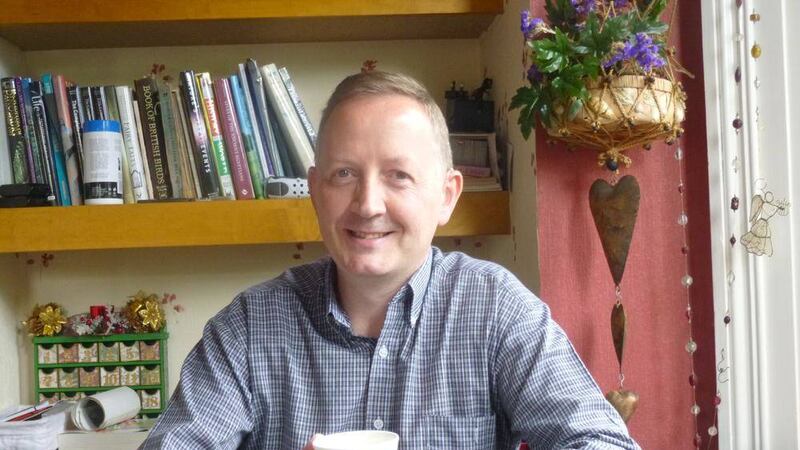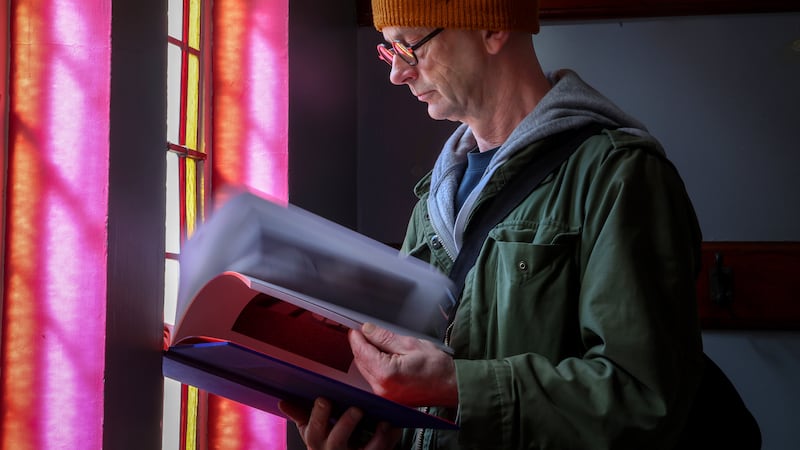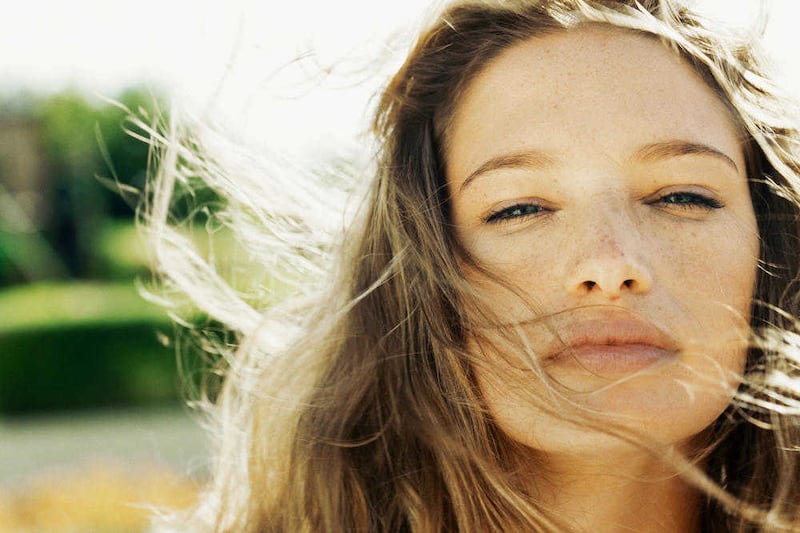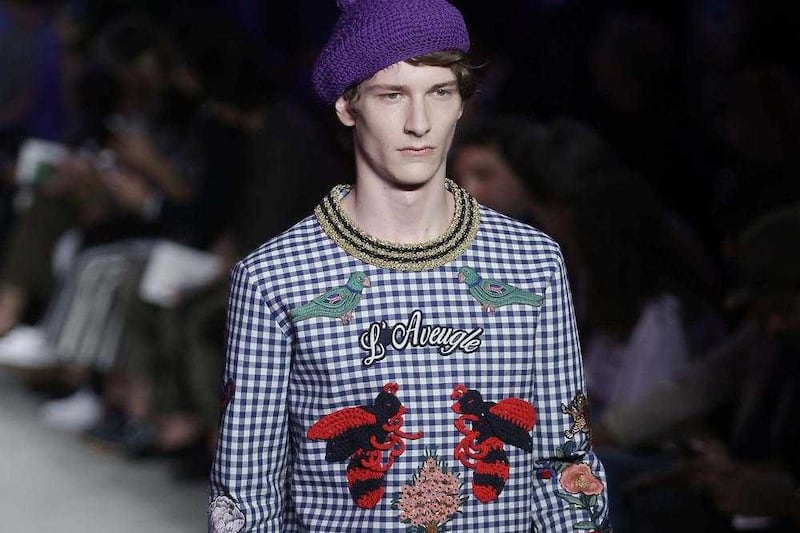MICHAEL Mulvenna was 41 years old when he first heard a small bird sing, a clock ticking – even the voices of his children. Michael was profoundly deaf for most of his adult life but three and a half years ago things changed dramatically when he had a cochlear implant fitted.
Although his three brothers and his identical twin were all born with normal hearing, he was different. He had moderate hearing and it was only at primary school that this inability was fully recognised and he began using hearing aids. He went to a mainstream school on the Falls Road in Belfast and it was hard, he was bullied, although he didn’t know what his classmates were calling him he knew by the look on their faces and their gestures that it wasn’t nice.
As time went by, what little hearing Michael had deteriorated and he became profoundly deaf. He could hear absolutely nothing. Thanks to a partial hearing unit in the school and an outstanding teacher, the young man focused on speech and language, began to lip read, concentrating on words and how they are formed, often standing in front of a mirror with his teacher, learning from the movement of his lips and his body language.
At 18 he learned sign language and left his confusion behind. He became assertive, sat his GCSEs at college and his confidence began to build. Socialising presented difficulties – someone thought he worked in a poultry factory when he actually worked in an upholstery factory – shopping meant repeating what he needed until the assistant got the message; going to the pub meant pointing to the drink he wanted.
“Some people have the confidence to persevere which I gained in later life, some unfortunately don’t.”
One of the places people can turn to is Action on Hearing Loss which is the new name for the RNID. The name may be changed but the vision hasn’t – ‘a world where hearing loss doesn’t limit or label people, where tinnitus is silenced and where people value their hearing enough to look after it’.
Mindfulness courses help combat negative thoughts; there’s assistance with employment and with leisure. Here Michael is a team leader on the sixth and final year of his lottery-funded position. Anyone from 14 upwards can join his Live and Learn Healthier Lives and benefit from these friendly and stimulating meetings, get answers to questions, support into training and work where they will be placed with deaf aware organisations.
There’s encouragement to take on physical and leisure activities – for instance, gardening – and last week a group went to Omagh Academy of Music to watch and listen to musicians, some learn to coach various sports, to swim and play football, many getting experience before the ‘Deaflympics' in 2017.
Michael maintains that the hearing public need to be more deaf aware – mind their language too. 'Deaf and dumb’ is a stupid phrase; a person may well be deaf but won’t be dumb. ‘Deffo', ‘deaf mute’ all are offensive.
“Hearing people must educate hearing people – saying deaf or hard of hearing is acceptable, the others are offensive and it's easy to learn how to sign hello and thank you,” Michael says.
Deafness can happen suddenly. Michael’s twin brother Damian, who was born hearing, woke up one morning and he couldn’t hear in one ear. He was in his mid-30s and now he’s wearing a hearing aid. He's fortunate to have Michael to give him advice and guidance and especially hope for the future following his cochlear implant operation, a complex operation that, in layman’s terms, means a chip the size of a 10 pence piece was inserted behind the ear, under the skin at the side of his head. This stimulates and vibrates the hair cells inside the ear structure, sending sound messages to the brain.
“It was a shock to the system!” Michael told me with a big smile. “I live in the country so hearing the birds for the first time was amazing, the wee birds twittering so I knew why Twitter is so called. I remember asking my colleague, ‘What’s that noise?’ It was a seagull. I didn’t like it. It’s an angry sound – give me a blackbird any day.
"The clock ticking was staggering and a strange sound in the office turned out to be the crinkling of a plastic bag. I had to ask friends and colleagues what various sounds were and so I began to learn. The sea, the wind, the river that runs by the house, my three young children playing, all new experiences.”
The implant has also helped Michael overcome tinnitus. He no longer has to take medicine because these new sounds are masking the tinnitus.
Today he is a role model for others, especially helping people who have had a cochlear implant to adjust to life post-surgery. He has overcome a condition which threatened to ruin his life by deciding not to give in to the difficulties but to take them by the scruff of the neck and deal with them.
His assertiveness and determination paid off and his successful application for a cochlear implant made the biggest difference of all. Now he needs a second implant for, as he puts it, ‘surround sound’ but so far this has been denied him – he thinks on grounds of age discrimination.
There are various reasons for the high numbers of those with hearing loss, one being that young people don’t realise the danger of wearing headphones and playing music at a high level. Raves and loud speakers do damage to the delicate hair cells in the inner ear.
Michael pleads that we look after our hearing. “Think of two tooth brushes, an old one all damaged and flat because it hasn’t been looked after properly and a healthy new one with the bristles standing up straight.” A very visual description of a devastating condition.
- More details at actiononhearingloss.org.uk.









